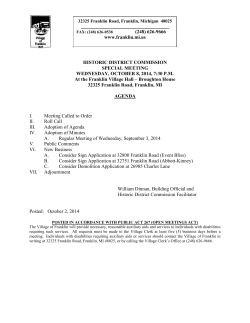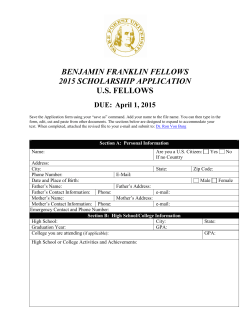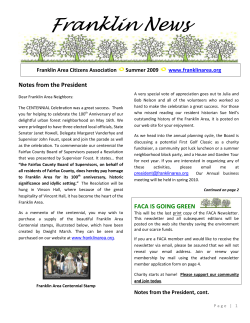
ing, same sound, same stage ... People’s Campaign, right before he died. It’s a top-notch, well-
ing, same sound, same stage setup, same production, same presentation. There’s a cohesiveness to it. And I like that. The only thing I don’t like is being gone from the family!” Family and youth outreach are issues close to Kirk’s heart. “I was adopted when I was four by a 64-year-old woman, Aunt Gertrude,” he recalls. “We used to go out and recycle old beer cans and newspapers and soda cans, and that’s how we paid for my music lessons. By the time I was 11 or 12, I started to do music at churches. As I got a little older, I had some experiences with bumping my head in life, with people close to me dying or getting into trouble. But after a while, I just matured and got serious in my faith—and then my music and my songwriting became serious.” Franklin is also a “faith ambassador” for the Children’s Defense Fund, a nonprofit advocacy and lobbying group. “It’s a great organization,” he says. “Basically it gives children a voice. It’s been around for over 30 years; it was founded by a great lady named Marian Wright Edelman, who worked with Dr. King, heading the Poor A very special guest appears on contemporary gospel artist Kirk Franklin’s most recent CD, Hero. “This one song, ‘Why,’ just felt very Stevie Wonder-ish to me,” Franklin explains. “I’d met Stevie a while back and we’d swapped numbers, so I called him up and said, ‘Man, I got this song I want you to hear.’ And he heard it, liked it, and wanted to do something on it.” Hearing Wonder lay down the song’s harmonica part was an unforgettable musical experience, says Kirk: “Oh man, it was like watching a mad scientist in the lab! Watching a genius doing his thing. It was great!” Franklin’s eclectic music, which combines gospel with R&B, modern 32 yamaha all access People’s Campaign, right before he died. It’s a top-notch, wellrespected organization, and it’s a great honor to be involved with them.” Most recently, Franklin has returned to the studio. “I’m finishing up a compilation of songs from the past,” he says. “It’ll have a couple of new tracks as well. I’ve got a great team in the studio, and a great band. There’s a dude I work with really closely called Shawn Martin, who plays keys—he’s an incredible beast of a musician!” “The Motif is the signature keyboard for urban music.” The Yamaha Motif ES8 is a big part of Kirk’s sound. “The Motif is the signature keyboard for urban music,” he notes. “It’s the go-to board for this music. A lot of times, if you need something like a drum machine, you can get what you need straight from the Motif. I use it in the studio, and we tour with it. And when I’m in a hotel room, I can use the builtin sequencer. It’s all pretty easy to use.” The Motif is the perfect keyboard for someone whose musical influences range from Thomas Dolby to Run DMC to Celine Dion. “I’m always trying to push the envelope and not be limited in the sounds or the range of the rock, hip-hop, jazz, and ’70s soul, has earned him plenty of praise. He’s been nominated for awards ranging from the Grammys® to the NAACP Image Awards to the Soul Train Awards. He’s also collaborated with secular artists—his 1998 hit single “Lean On Me” featured Bono, Mary J. Blige, Crystal Lewis, and R. Kelly. Kirk has toured extensively in the 13 years since his first hit album, Kirk Franklin & the Family, was released. The composition of his live band reflects the diversity of his sound. “I tour with three horn players, lead guitar, bass, two keys, drums, percussion, and a DJ,” he says. “What I like about touring is that you have a cohesive presentation, rather than doing just oneoffs. On one-off dates, every time it’s a whole different sound company, a different promoter, a different type of venue. Sometimes you don’t know what you’re dealing with until you get there. But when you’re touring, you have the same lightwinter ’07 33
© Copyright 2025





















